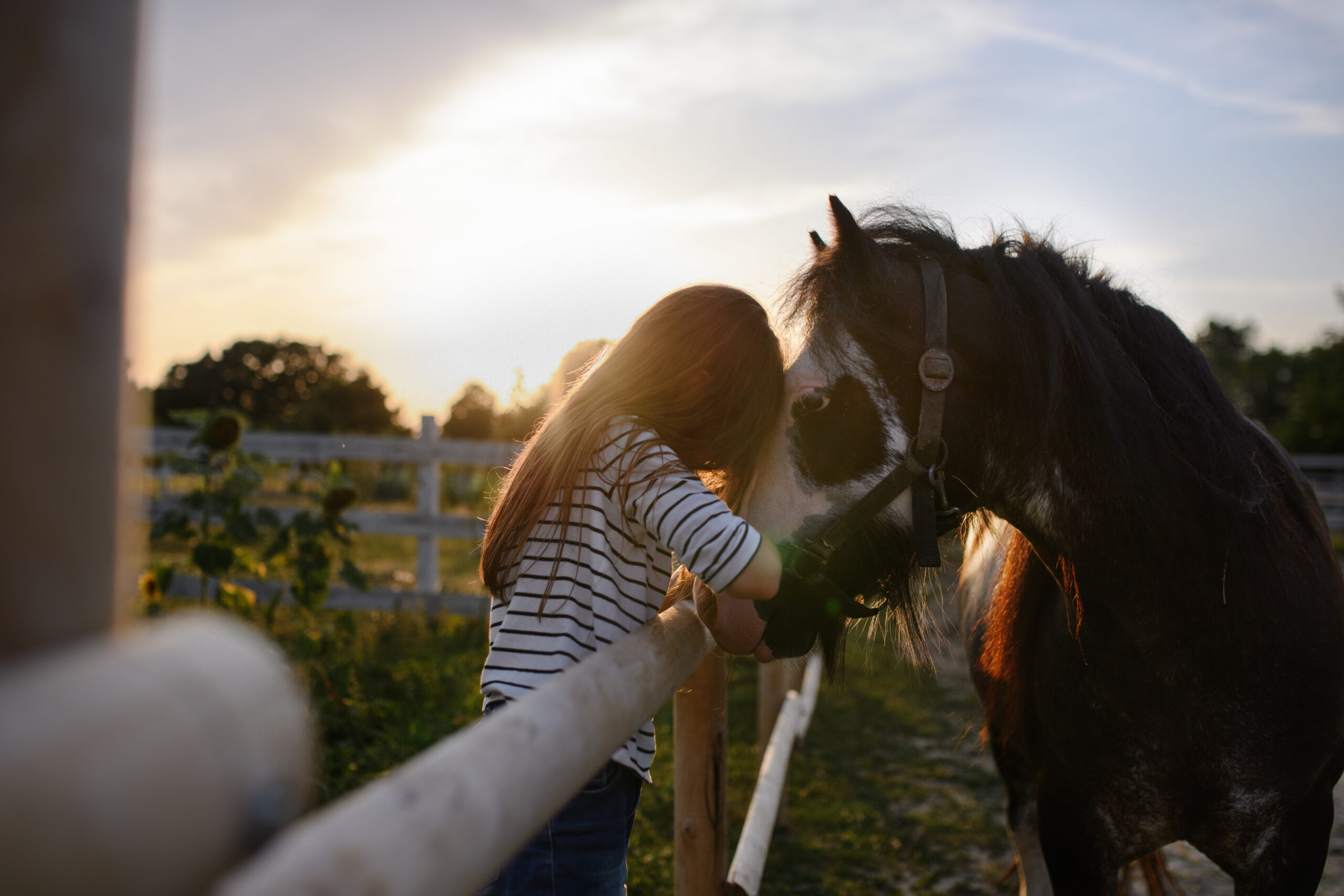Animal therapy, also known as animal-assisted therapy or pet therapy, can be particularly beneficial for children struggling with mental health challenges. We used to volunteer at an animal therapy center in AZ and saw an autistic child who wouldn’t speak. Once they placed him on a horse, he would not stop talking. It was remarkable to see. That is one of the events that started us on our journey to wanting to create Jacob’s Ranch, the animal therapy center we are building here in the Appalachian Mountains. Here are several reasons why you should consider animal therapy. Follow the link to learn more about Jacob’s Ranch.
Humans, especially youth, connect with animals, especially those incredibly gentle and well-trained. Kids often form strong emotional connections with these animals. This bond can provide a sense of companionship and unconditional love, fostering a supportive environment for the child.
Interacting with animals has been shown to reduce stress and anxiety levels. The presence of a calming and non-judgmental companion can help children feel more at ease, lowering stress hormones and promoting relaxation.
Children who struggle with verbal communication may find it easier to express themselves through animal interactions. This is the exact scenario we witnessed. Animals are non-judgmental listeners; caring for a pet can improve a child’s communication skills and confidence while providing unconditional love.
Caring for an animal requires empathy and responsibility. Through animal therapy, children can better understand others’ needs and feelings, promoting empathy and compassion, which are essential aspects of positive mental health.
Caring for an animal involves routine tasks such as feeding, grooming, and exercise. This sense of responsibility can provide structure and routine for a child, contributing to a sense of purpose and accomplishment.
Animals can serve as a positive distraction from negative thoughts or overwhelming emotions. Engaging in activities with animals, such as playing or walking, can redirect a child’s focus and provide a break from emotional challenges. After we lost Jake, our dog Max was such a comfort, and caring for him offered a break from the extreme sadness and tumult I was experiencing.
Successfully caring for an animal can boost a child’s self-esteem and self-confidence. Achieving small tasks, such as teaching a dog a new trick or ensuring a pet’s well-being, can instill a sense of accomplishment and pride.
Many forms of animal therapy involve physical activities, such as walking or playing with a dog. Physical exercise positively affects mental health, releasing endorphins and improving overall well-being.
Animals provide a non-judgmental and non-threatening presence, creating a safe space for a child to express emotions freely. This can be particularly valuable for children struggling to open up to adults or peers.
For children who may have experienced trauma or have trust issues, building a connection with an animal can be a first step in rebuilding trust. Animals offer a consistent and reliable presence, helping to establish a foundation for healthy relationships.
Incorporating animal therapy into a comprehensive mental health treatment plan can provide a unique and valuable avenue for children to explore and address their emotional well-being. However, it’s crucial to work with mental health professionals to determine the most effective and appropriate interventions for each child.







Leave A Comment